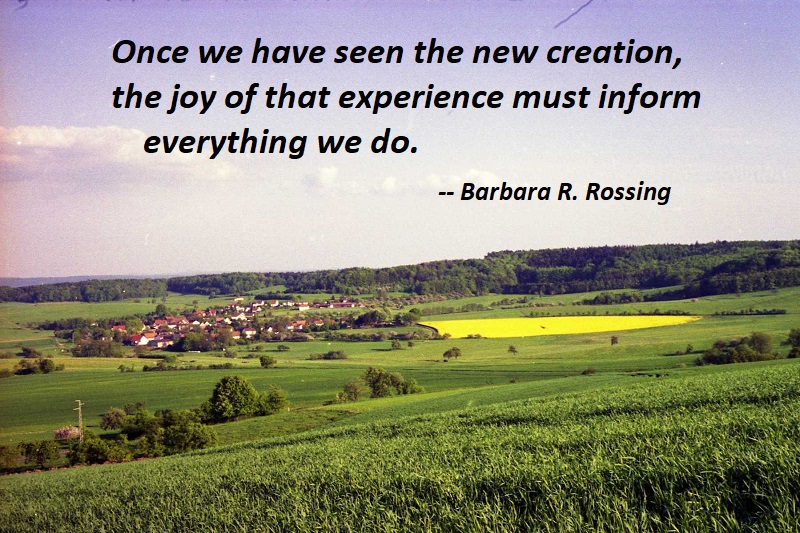The Holy City

God’s beloved city in Revelation 21-22 is not primarily a vision for after we die, or for after Jesus returns. It is rather a vision that can transform the way we live out God’s reign in the world today. It is a vision of the healing leaves that God wants to lay on every broken heart, on every war-torn landscape. It is a vision of Lamb power in the world. And we are part of that vision. Once we have seen the new creation, the joy of that experience must inform everything we do.
— Barbara R. Rossing, The Rapture Exposed, p. 164
Photo: Potzbach, Germany, April 1997